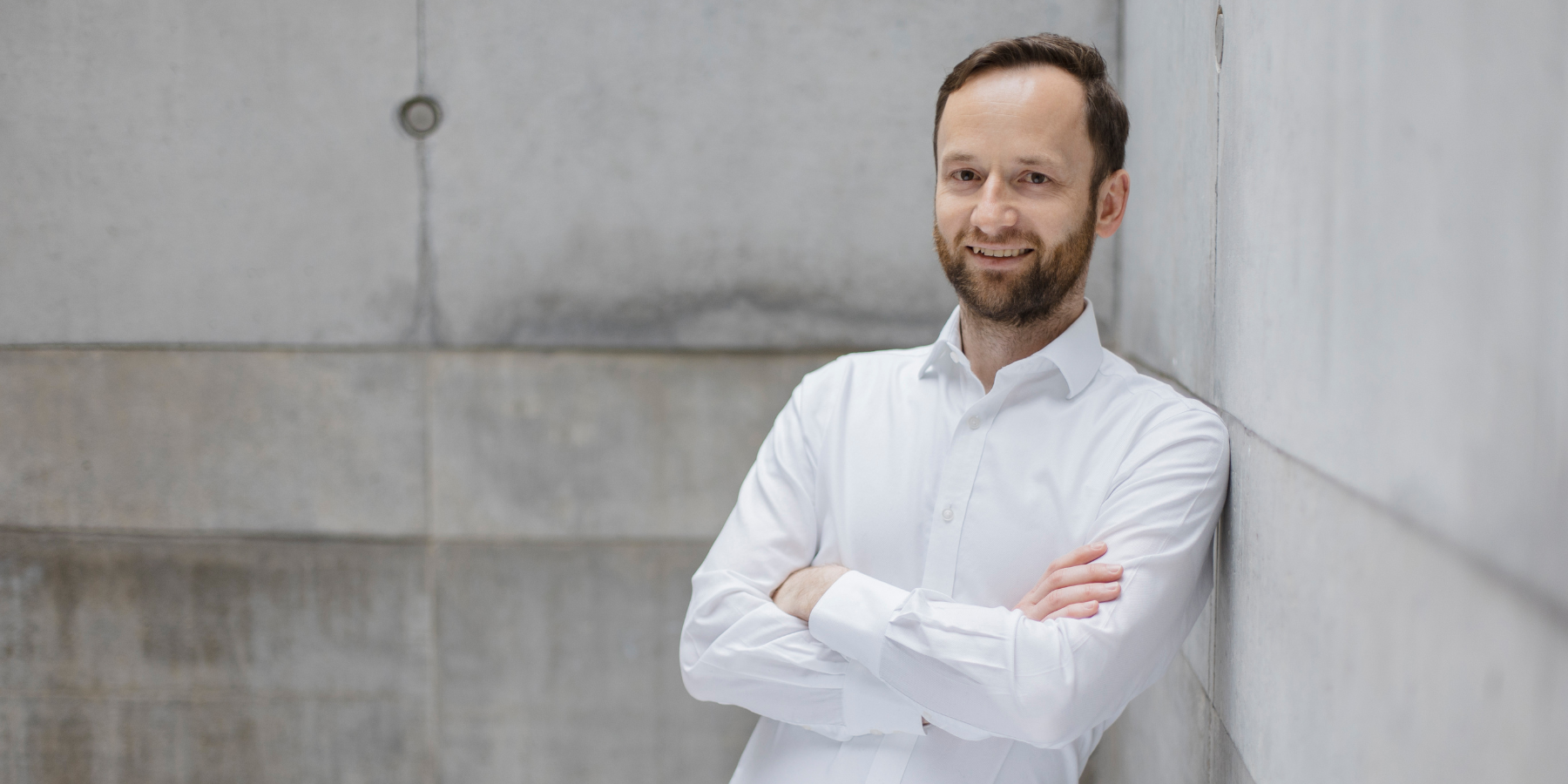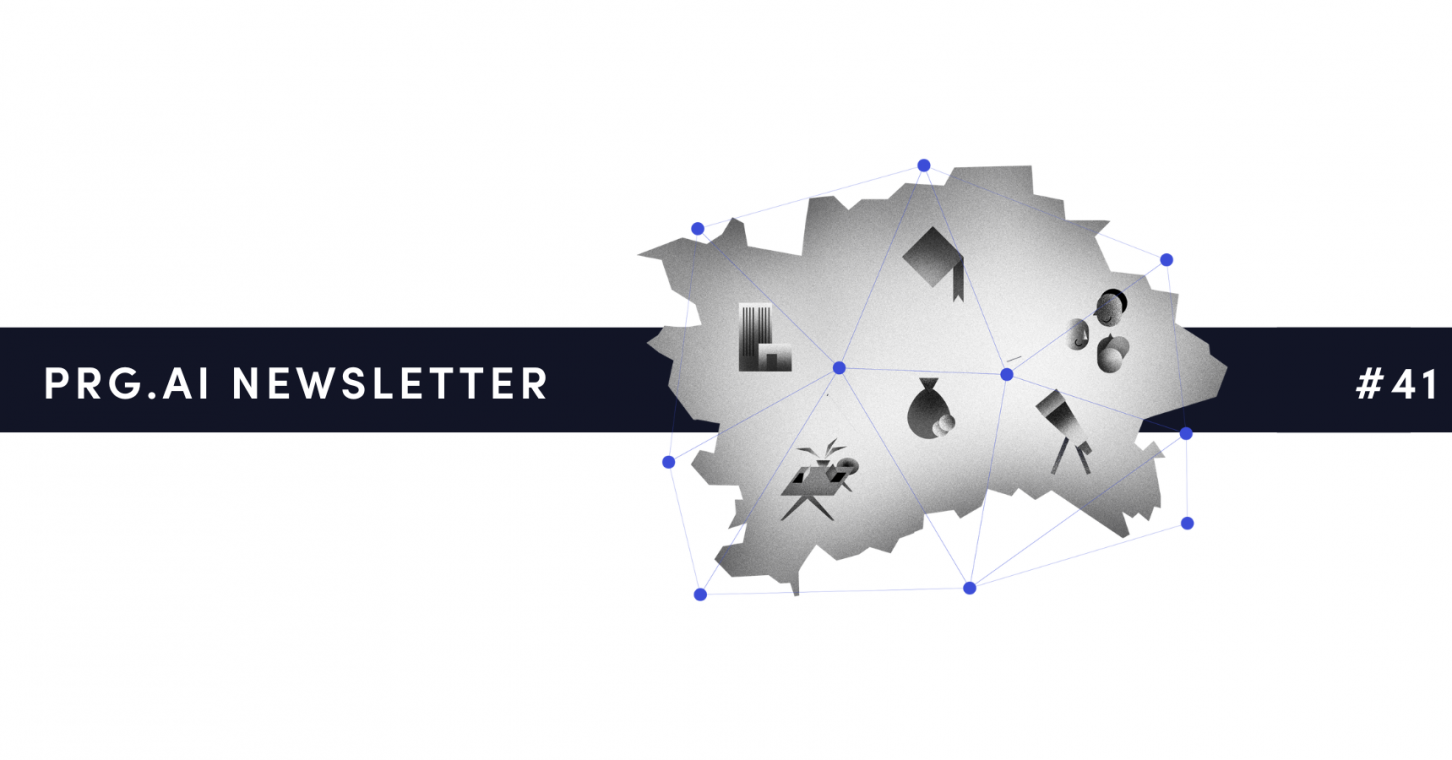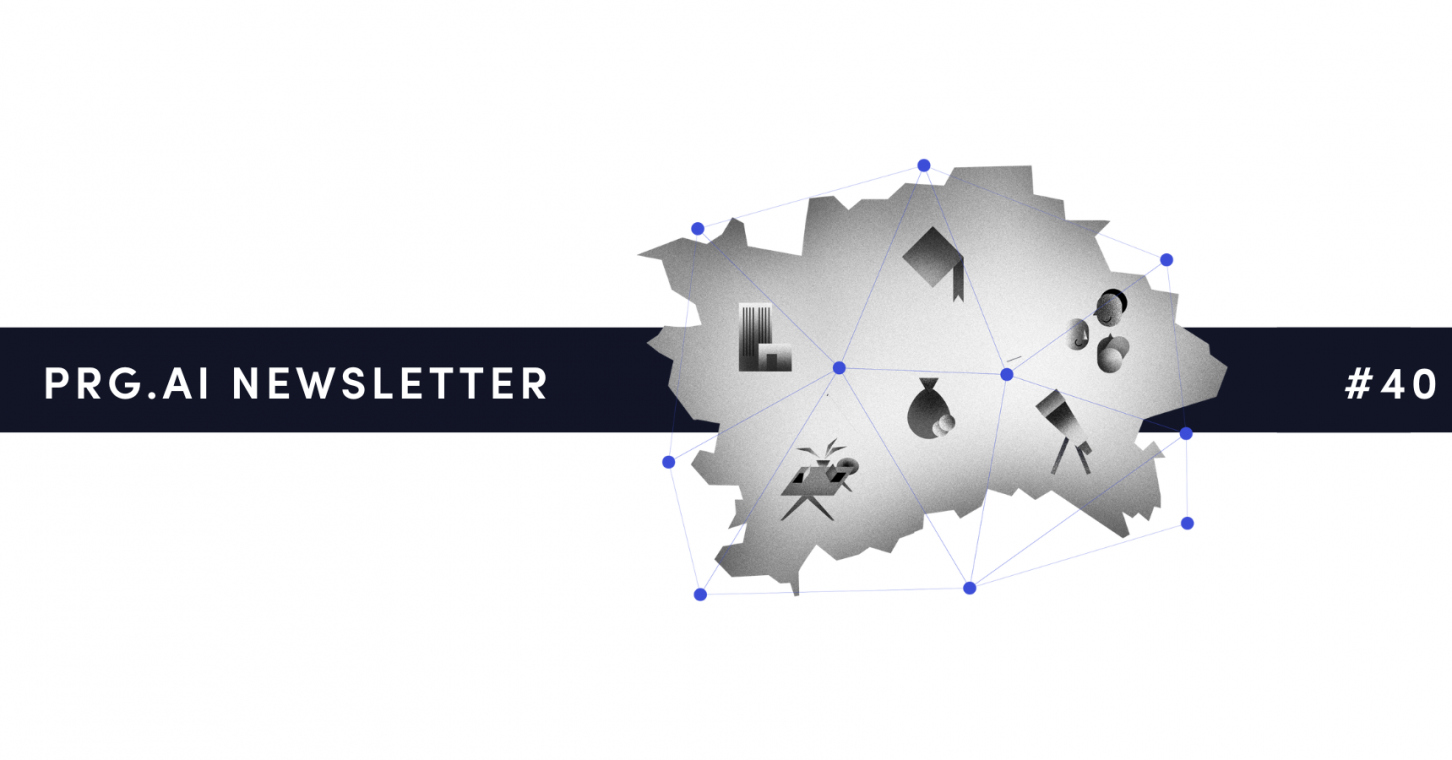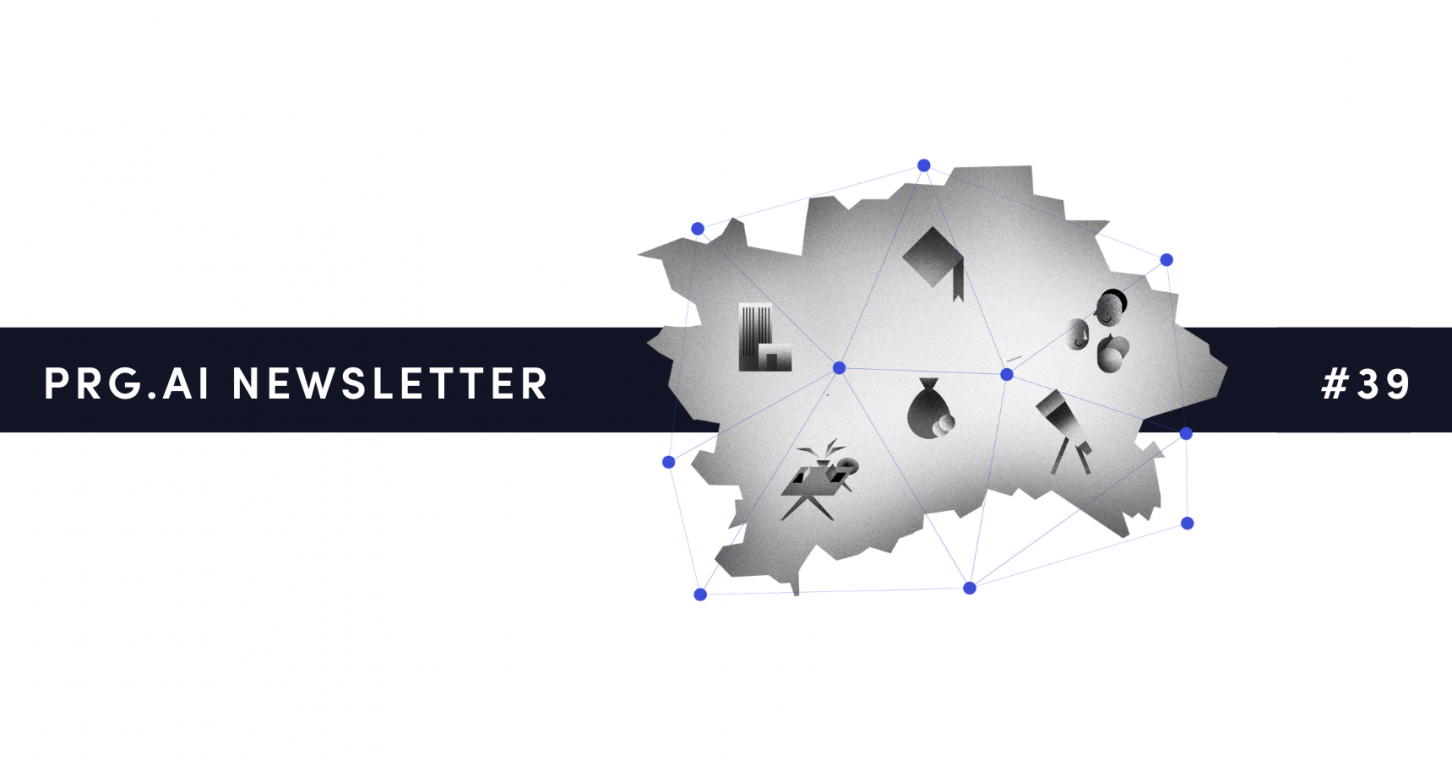Lukáš Kačena: AI isn’t just for engineers and IT people
It helps institutions, schools and companies to understand the new world of technology and wants to turn Prague into a European centre of artificial intelligence. We're talking about prg.ai. Read more in an interview with its director Lukáš Kačena.

In what form and through what activities do you support the development of artificial intelligence in Prague and the Czech Republic?
Our work is very diverse. You could say that we take care of the Prague ecosystem in the field of AI. For example – a delegation from abroad comes to us with an interest in AI. We often get a call from the Ministry of Foreign Affairs to tell them about research, companies and events that are happening around AI. We are a crossroads, or rather a switchboard. With over three thousand people subscribing to our newsletter, interest in AI is growing. We at prg.ai have the information and we can pass it on. I think that’s our mission.
Our role is not professional nor expert – we don’t develop artificial intelligence. We do the soft stuff from networking to informing and educating. At the same time, we have an academic background. We know where to look if we need an expert.
You work a lot with experts from CTU. Are you also CTU graduates?
Ironically, none of our team members come from the field of artificial intelligence.
Then why do people have such trust in you if you don’t have a professional background?
That’s a good question and we are aware that people may think about it this way. Firstly, our role is not professional nor expert – we don’t develop artificial intelligence. We do the soft stuff, from networking to informing and educating. At the same time, we were founded by academics from CTU, Charles University and the Institute of Computer Science of the Academy of Sciences, with whom we work closely, so we have the academic background. We know where to look if we need an expert. On the other hand, we try to show that AI is not just for engineers and IT people. In fact, its rapid development is making it increasingly clear that it is a useful tool for the whole of society. The more people across disciplines who work on it, the better. Just as we have all had to learn to use the internet, will we have to learn to use AI like ChatGPT. Artificial intelligence is now applicable in all fields from agriculture to military, industry, social sciences and healthcare. ChatGPT can, for example, help in psychotherapy or social work. In addition, we are now working on a project where human rights are part of AI. In short, there is a huge interdisciplinarity.
Can AI help in any way, for example, in the area of social policy? For example, in issues such as homelessness, social benefits, support for the long-term unemployed, etc.
Artificial intelligence can be used in almost all areas of human activity. In homelessness, from what I can find, AI can be used by frontline social workers. It can help them, for example, to make decisions about a client’s risk factors to determine where they stand, what to expect from them in the future, or whether they are at risk of long-term homelessness and unemployment in particular. There is a big future for AI in the social and healthcare sectors because there is a shortage of human resources that AI can make up for. While a lot of people are afraid that AI will take their jobs away from them, it is more likely to help them and make their jobs easier with assistive technology. The change will be similar to the advent of the internet.
Why is it important to talk about AI in primary schools?
Because the children themselves are already starting to work with artificial intelligence. They are searching on Google, they are on social media, whether we want them to be or not. These platforms are influenced by algorithms that keep us in social bubbles. Kids are on Netflix and they are already using many of the features of ChatGPT, for example, to do their homework.
Should we be worried that children will stop thinking for themselves because of the development of AI?
I think we have had similar fears in the past. Take the calculator on your mobile phone. It makes life so much easier. But just because we have a calculator in our pocket doesn’t mean we’ve forgotten how to count. It’s the same with languages. We’re not going to resign ourselves to learning a language just because we can translate a conversation with a Japanese person from the other side of the planet on the internet.
What AI programmes are in schools today?
There is an excellent project in Prague – AI Dětem (AI for Kids), which has already involved over 400 primary schools. Their goal is, among other things, to create educational materials and teaching methods about artificial intelligence. And not just about AI itself. For example, they have also incorporated it into history. It’s nice to see that AI is entering all subjects, probably with the exception of physical education.
The teaching of AI is very good not only in Prague, but in the whole Czech Republic. I’m talking mainly about MFF UK and FEL and FIT CTU, where they have courses specifically focused on AI and produce hundreds of students every year.
And what about our higher education? Is it keeping up with rapid developments?
One thing is the teaching of artificial intelligence, which is of very high quality not only in Prague, but throughout the Czech Republic. I am talking mainly about the Faculty of Mathematics and Physics at Charles University and the Faculty of Electrical Engineering and the Faculty of Information Technology at the Czech Technical University, where they have courses specifically focused on artificial intelligence. Teaching at these Prague schools produces a good number of students, hundreds every year. For students not only from these schools, we have a very interesting programme called prg.ai Minor, which is a superstructure over the courses of study at these two universities. The programme combines the best courses from both universities, but also offers courses from the Faculty of Social Sciences. Students can thus study across faculties. This year, we have also had students from law, nuclear physics and natural sciences sign up for the programme. The diversity of education is expanding a bit, we are breaking down boundaries and that makes us happy.
What about retirement homes? Does AI have a potential use here too?
It is being considered that some models could work as part of psychotherapeutic care, where there are very few staff. Similarly, a chat tool could be used for people who are home alone and have no one to talk to. ChatGPT can already have robust conversations on a wide range of topics, which could be beneficial in cases of lonely pensioners. Not only written but also voice conversations are possible, and a range of similar tools will emerge in the future. In addition, there is talk in the healthcare sector about telemedicine and a lot of diagnostic tools that will allow patients to stay at home in their own environment. For example, in the form of a wristband, such as a smart watch, which will monitor your vital signs and simply send the data straight to the doctor, without the person having to physically go for an examination. Such things are already being introduced in our country, for example, in the South Moravian Region.
And do you also offer programmes for the general public?
Yes, we are trying to make the general public aware of AI. In Finland, a course called Elements of AI has been created for the general public, and people with a humanities background can also take it. I myself am a political scientist graduate from the Faculty of Social Sciences, and I managed to pass the course.
This interview originally appeared in Nový Prostor no. 605 on May 23, 2023. The author of the interview is Alžběta Holcová. The entire issue is available for purchase on the NP eshop.
Next up from prg.ai

Typical Prague AI firm is young, self-sufficient, and export oriented, shows our new comprehensive study
130 companies, 11 interviews, 9 business topics. Explore all that and more in the unique study authored by prg.ai, which contains an overview of last year's most notable events on the local AI scene or articles on the future of AI or gender equality in research.

prg.ai newsletter #41
The first spring edition of our newsletter! Get the latest prg.ai updates, exciting news from the Prague AI scene, a curated list of interesting events, open positions, and much more. Stay in the loop!

prg.ai newsletter #40
The fortieth milestone issue of the prg․ai newsletter is packed with news and intriguing facts not only from the Prague AI scene. Keep reading so you don't miss out on anything!

prg.ai newsletter #39
What did the first month of 2024 bring, and what can you look forward to in February? Find out in the next prg.ai newsletter. Check out what's new on the artificial intelligence scene (not only) in Prague.
